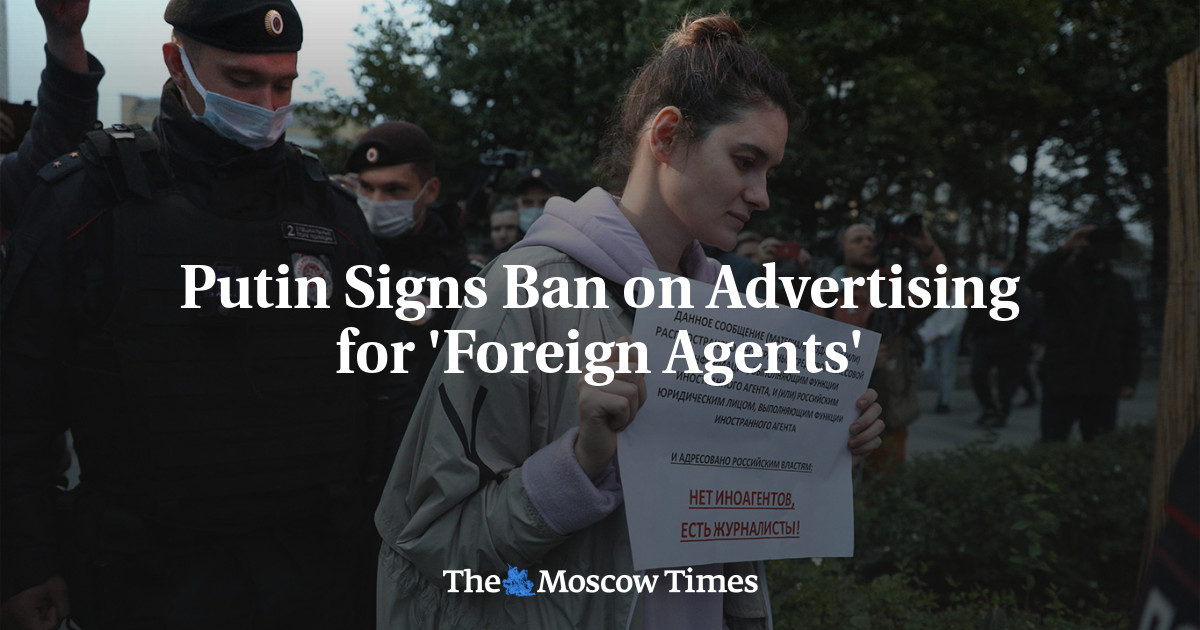
President Vladimir Putin on Monday signed into law a bill that bans advertisers from working with “foreign agents,” a move widely expected to make it next to impossible for independent media outlets hit with the designation to earn money.
News of the bill’s passing in Russia’s lower-house State Duma late last month sent shockwaves through the small community of independent media outlets and journalists that have stayed in the country despite wartime censorship and a sweeping crackdown on dissent.
Under the new law, businesses can no longer advertise their products and services with individuals and legal entities that the Justice Ministry has branded as “foreign agents.”
So, too, are “foreign agents” — which include journalists, bloggers, news websites and social media pages — prohibited from advertising their own products and services through businesses.
An individual who breaks the law could face fines of up to 50,000 rubles ($552), while legal entities could be fined up to 500,000 rubles ($5,520).
Running afoul of the law twice in one year could land “foreign agent” violators in prison for up to two years.
Following the bill’s passing in the State Duma in late February, Russian journalist Katerina Gordeeva, who was designated a “foreign agent” in 2022, announced she was shutting down her popular YouTube interview series, but later vowed to keep producing the series in response to viewer demand.
Likewise, journalist Aleksei Pivovarov said he was stepping back from the online news outlet Redaktsiya, which produces popular documentaries and a regular news show.
Pivovarov, who founded Redaktsiya in 2019, was named a “foreign agent” in 2022.
After Putin signed the bill into law on Monday, Russian video blogger Ilya Varlamov, who was designated a “foreign agent” in March 2023, said his popular YouTube channel and other media projects would “probably either need to close… or drastically reduce the number of employees.”
Hundreds of news outlets, organizations, journalists, businesspeople and cultural figures have been branded “foreign agents” — which carries negative Soviet-era connotations — since Russia introduced the legislation in 2012.